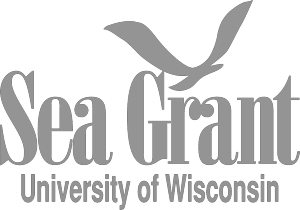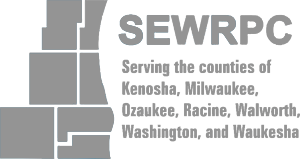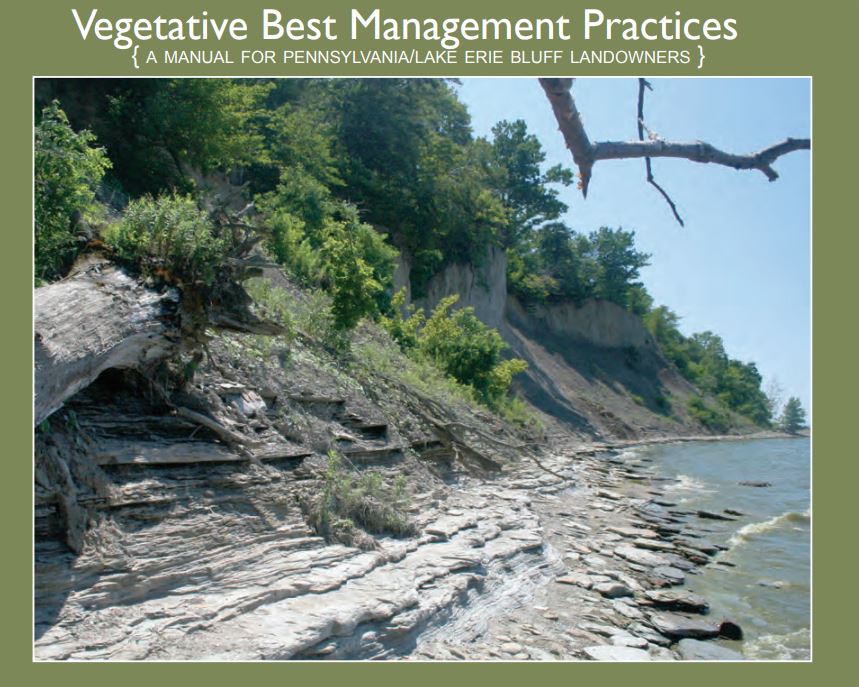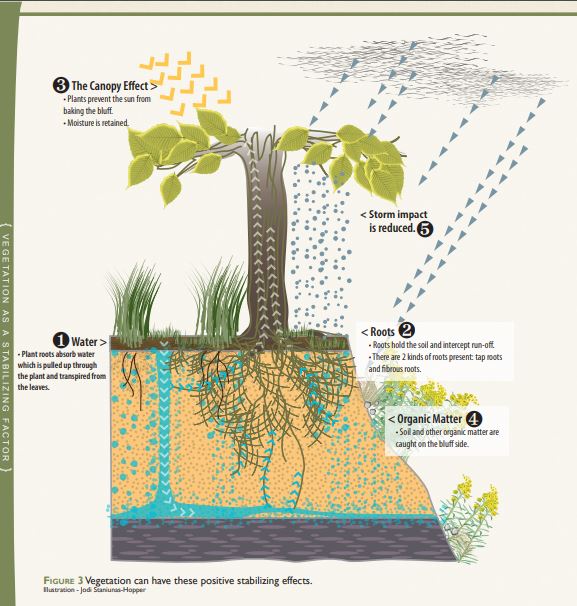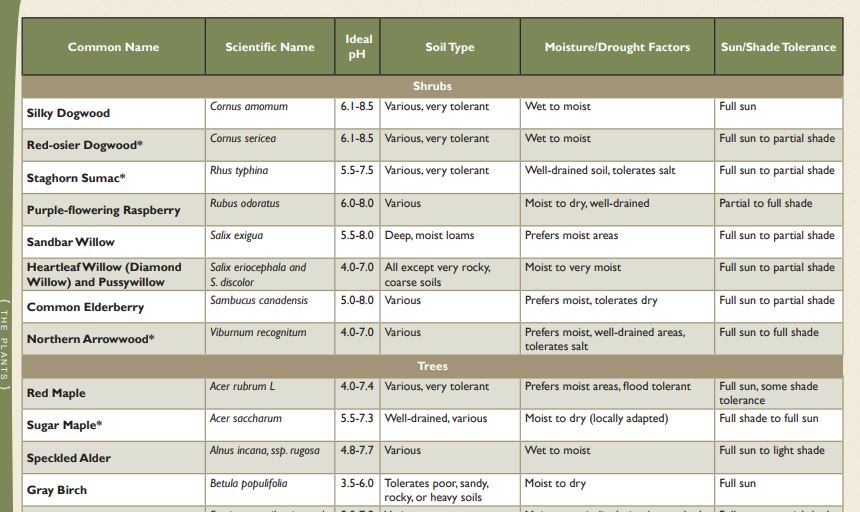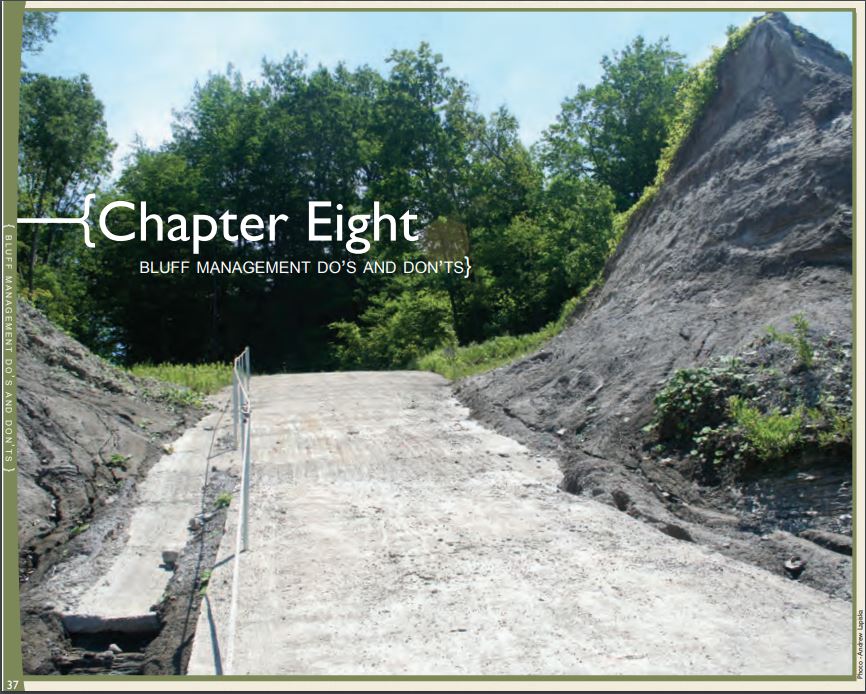April 2019
Vegetative Best Management Practices: A Manual for Pennsylvania/Lake Erie Bluff Landowners
Vegetative Best Management Practices: A Manual for Pennsylvania/Lake Erie Bluff Landowners is a handbook that provides technical assistance to Lake Erie property owners affected by shoreline erosion and bluff recession. The manual provides recommendations about using vegetation to stabilize coastal bluffs and counteract erosive forces. Moreover, the manual recommends best management practices that can address the underlying geologic and hydrologic causes of erosion to help minimize recession. This decision support tool was prepared by Mercyhurst College and Pennsylvania Sea Grant and was funded by a Federal Coastal Zone Management Grant from the National Oceanic and Atmospheric Administration (NOAA). This document is available to download for free on the Pennsylvania Sea Grant College Program website.
Audience
This document is written for Lake Erie property owners to help them understand the natural processes that are at work on the shoreline and the impact human activities have on these processes. While the vegetation recommendations made in the manual will be different for each Great Lakes state, the management techniques are applicable to Lake Michigan’s coastal bluffs as well.
Decision Support
“Each and every site is unique and is in a constant state of change. This manual contains information that will help the homeowner develop a plan of action to manage vegetation in order to help foster bluff stability.”
This tool was prepared to provide property owners with information about how to use and manage vegetation on their bluff properties in order to minimize erosion. Chapter 7 offers a list of native vegetation that naturally grow on Pennsylvania coastal bluffs. However, because maintaining a robust, healthy plan community cannot stop all erosion, the manual provides recommendations for best management practices that will address the underlying causes of erosion.




